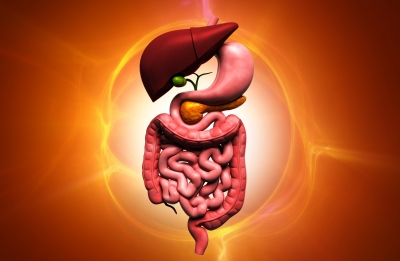By Christine Cheng, R.Ph. and Fred Cheng, R.Ph.
No doubt most of us have enjoyed various foods over these past few weeks at Holiday gatherings and chances are, a few of us have experienced some sort of gastrointestinal (GI) discomfort. Although there are possible organic reasons why eating too much or eating “foreign” foods may cause GI issues, undigested food can be the reason behind bloating and gas, cramping, diarrhea or constipation. Improperly digested food can be linked to certain food sensitivities; for example, undigested lactose, the carbohydrate found in milk, causes issues for those who are lactose intolerant, but this can be remedied by taking a lactase (or lactose-digesting enzyme) supplement. Another example is people with Coeliac disease who cannot tolerate gluten, but supplementation with Dipeptidyl peptidase IV (DPP IV, a gluten-digesting enzyme) can greatly improve their tolerance and reduce symptoms.
Another possible mechanism by which poor digestion can cause GI issues is that carbohydrates that are not thoroughly digested can become “food” for the bacteria and yeast in our gut. Some of the by-products of bacterial fermentation in the large intestine are gases such as carbon dioxide, methane and hydrogen. When these gases build up, they can cause painful bloating and embarrassing flatulence.
Poor digestion of fatty foods can cause discomfort mainly in the area of the small intestine. Fat digestion requires the secretion of bile salts from the gall bladder to help emulsify the fats as well as lipases (fat-digesting enzymes). If the presence of either of these is compromised, fats will not be properly digested.
It is theorized that improperly digested food may also contribute to increase symptoms in those with Leaky Gut Syndrome. This is where an improperly functioning GI lining allows unwanted food particles to pass into the bloodstream, where it can trigger inflammation and changes to the normal (healthy) gut flora that can then cause problems in the GI and beyond.
Poor digestion can worsen heartburn or reflux symptoms as the undigested food spends more time than intended in the upper portions of the GI tract. This potentially allows for a greater amount of contact time between the acidified stomach contents and the esophagus, which leads to worsened symptoms.
If you have checked in with your doctor to discuss your particular GI concerns and the doctor has ruled out any organic cause of your symptoms, then consider a trial with a digestive enzyme. Look for preparations that contain enzymes to digest all of the macronutrients (i.e., carbohydrates, proteins, fats). Ideally, because enzymes can have very specific functions and will only “cut” a larger molecule at a specific place, a complete digestive enzyme will have multiple enzymes to target each class of micronutrient. BIOGEST® from Thorne Research, DIGESTZYME-V from Orthomolecular Research and , SPECTRAZYME® GLUTEN DIGEST from Metagenics are products that fit the bill. The latter two preparations contain DPP IV and Tolerase® G, respectively, that specifically target gluten. Come talk to one of our pharmacists to discuss which preparation would be appropriate to try so that you can have a happier gut in the New Year!
Christine and Fred Cheng are a passionate, charismatic sister-brother pharmacist team at their unique, family-owned and operated Pharmasave stores in Cloverdale and Steveston, B.C. They specialize in natural remedies and compounding for both human and veterinarian use. Everything mentioned in their article is available InStore.
***All information posted and shared by Cloverdale Pharmasave is offered to provide information and choices regarding nutritional support for various health concerns, none of which is intended to be a treatment protocol for any disease state. The information does not replace seeking professional advice from your physician. Consult your health care practitioner before taking dietary supplements.
Articles, Q&A, blog posts and all materials submitted for publishing is the intellectual property of Cloverdale Pharmacy Ltd – reproduction in part or whole, in print or online, without written consent and permission is prohibited.




